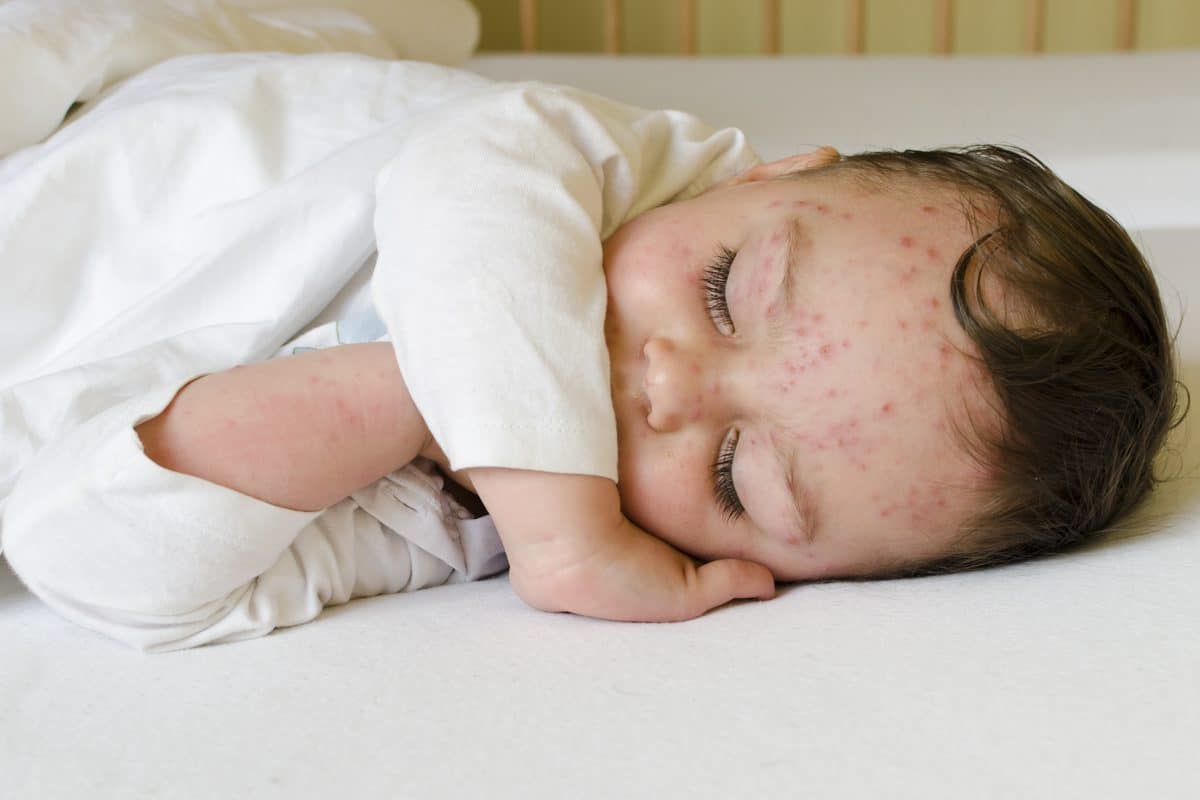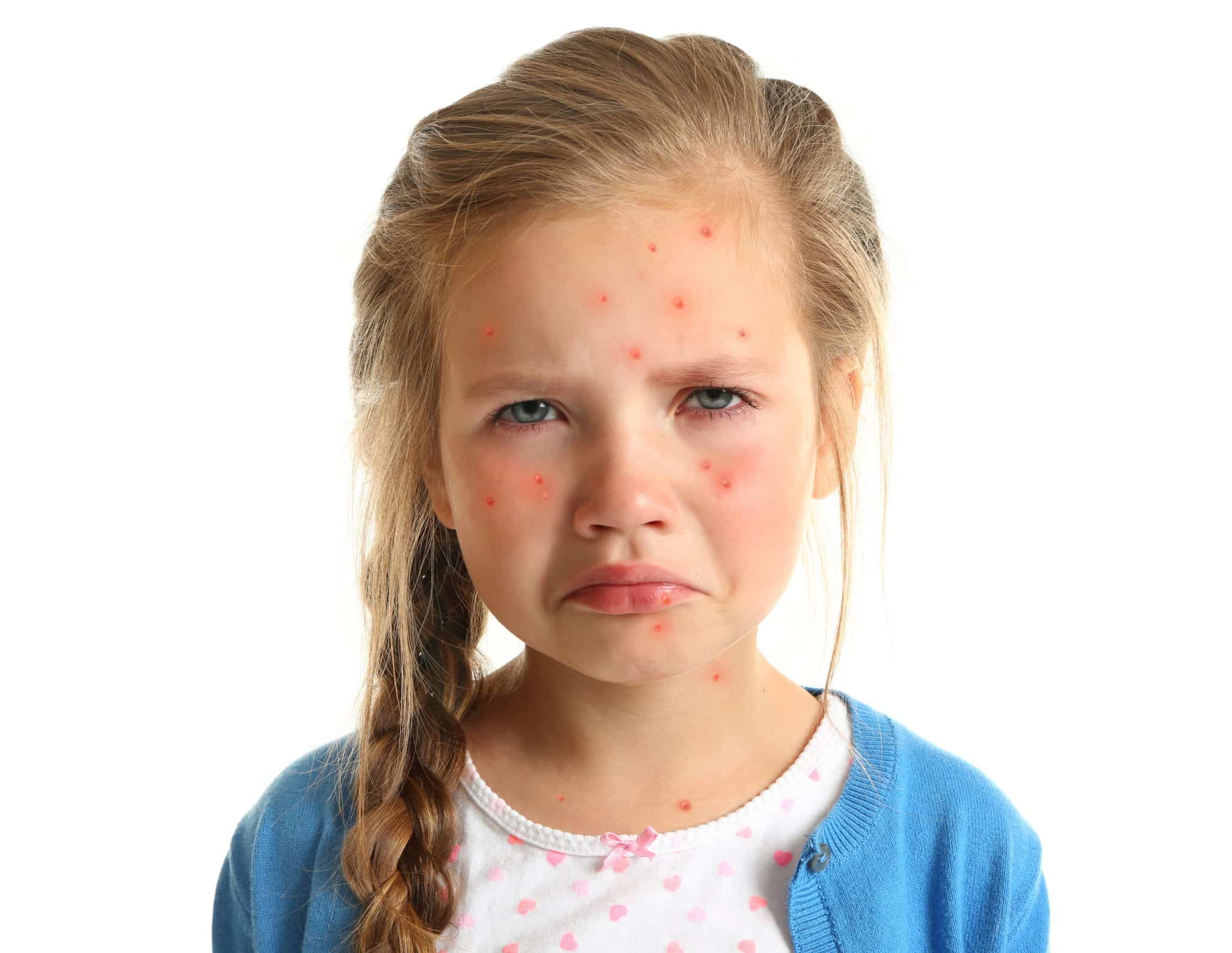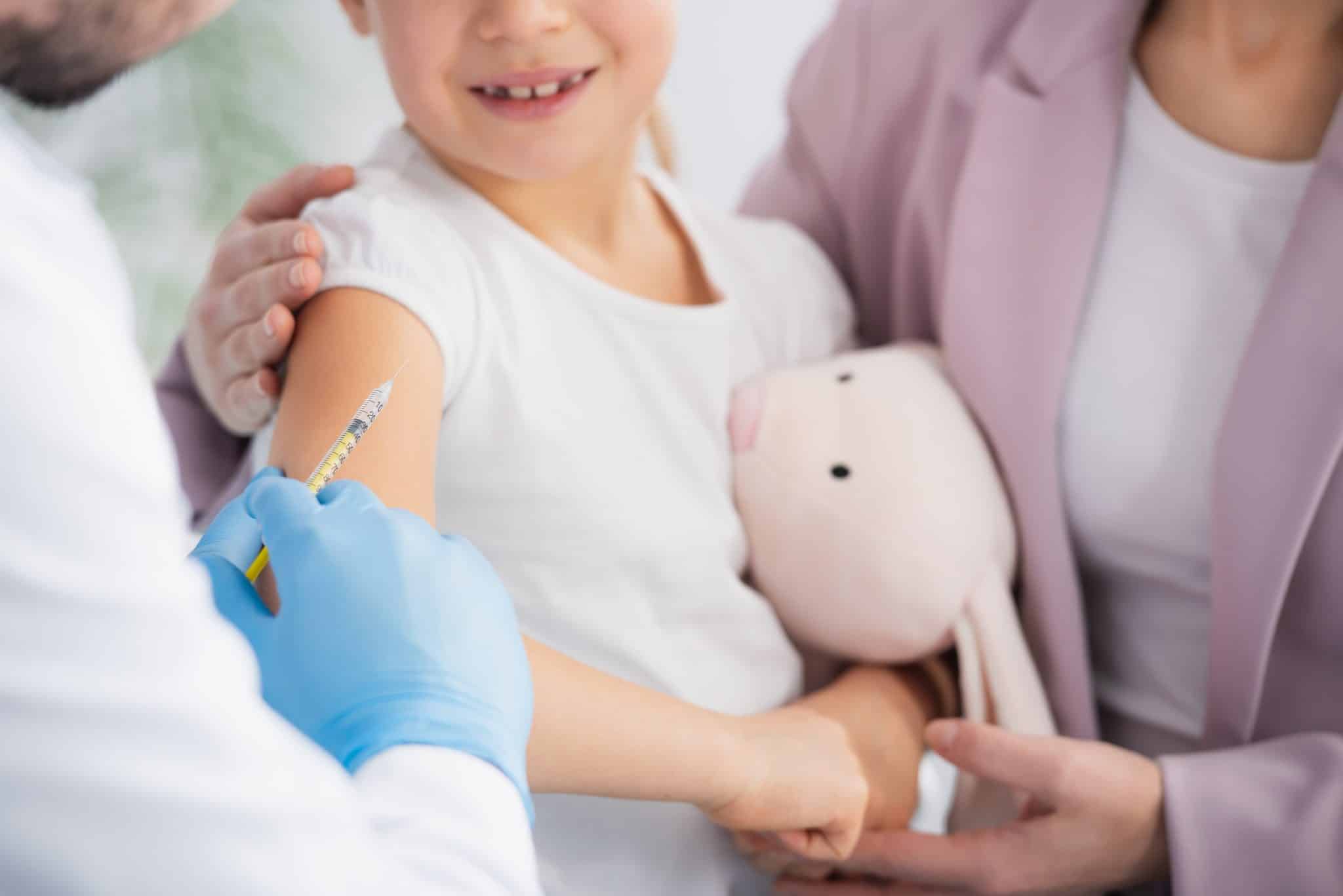Chicken Pox Symptoms

Chicken Pox, also known as Varicella-zoster virus, is a common virus that is best known for the itchy rash it causes. Commonly diagnosed in children, chicken pox is a relatively mild disease but as with all viruses, it can be dangerous to a few collections of people.
As a pediatrician’s office, we are routinely asked about the chicken pox, the rash, symptoms, and the varicella vaccine. Read on for more information about what chicken pox is and what you can do if your child contracts it.
What Is Chicken Pox?
Chicken pox was once thought to be a right of passage during childhood but is now an uncommon ailment due to the advancement of vaccines.
This virus is extremely contagious; according to the CDC, 90% of people will contract it if they are in the vicinity of a contagious person. A person is contagious for 1 to 2 days before their rash appears and until all of the lesions have crusted (or scabbed) over.
Chickenpox is spread via droplets from the mouth or nose of a person who has the virus. It can also be spread by directly touching the blisters of an ill person.
Chicken Pox Symptoms
Although the classic chicken pox rash is what most people associate with the virus, it is not the only symptom of chickenpox. In fact, the rash will not typically be the first symptom that a child experiences.
1 to 2 days before the rash appears, a child may have a fever, fatigue, loss of appetite, or a headache.
The rash begins as raised bumps, which progress to fluid-filled blisters. These eventually erupt and crust or scab over. This rash is incredibly itchy and can create scars if scratched too much.
Complications
Although chicken pox is thought to be a mild virus, it can cause complications in certain groups of people. Babies, older children, adults, pregnant women, immunocompromised individuals, and adults with no prior infection can experience severe cases of chickenpox.
Severe complications include pneumonia, bacterial skin infections, sepsis, and dehydration. Rare complications include encephalitis and hepatitis
For pregnant women, the implications can be even more catastrophic. Her baby could be born with severe and life altering birth defects. Fortunately, these symptoms are rare, but something every woman of childbearing age should be aware of.
Chicken Pox Treatment
If you believe that your child has chicken pox, it is imperative that you call your pediatrician. They will tell you whether your child should be seen immediately or if you can treat them at home.
Standard treatment options at home include baking soda baths, calamine lotion, and oatmeal baths for the itchy rash. Prescription antiviral medication may be provided to individuals at higher risk for complications.
Some pediatricians will instruct you to lower a child’s fever to make them more comfortable, but it is very important to only treat with acetaminophen and not ibuprofen. Ibuprofenhas an uncertain association with severe skin infections when given during a chicken pox occurrence. In some cases, necrotising fasciitis has occurred, which can be life threatening. Aspirin should be avoided due to a known association with Reye Syndrome when given during a viral infection.
Throughout recovery, make sure that your child drinks plenty of fluids and offer them food that is easy to digest until they’ve recovered.
Chicken Pox Prevention
Now that we’ve frightened every parent on the planet with the scary stuff, what if we told you that all of this could be prevented with a very safe and effective vaccination?
We know what you’re thinking: “They didn’t have a vaccine when I was a kid and I turned out alright.” That may be true, but why risk it at all?
The varicella vaccine is 82% effective at preventing contraction of the chicken pox and almost 100% effective at preventing severe cases after 1 dose. Children will receive their first dose between 12-15 months of age and their second between their 4th and 6th birthdays.
Once they have their vaccine, their immunity is almost identical to someone who contracted the virus as a child (while avoiding the annoying rash).
Conclusion
Chicken Pox used to be a very common childhood illness but with the help of a safe and effective vaccine, we rarely see it in our office.
However, parents must remain vigilant. Although mild in most cases, chicken pox can take a turn for the worse. Luckily we have many treatment options to keep children comfortable if they happen to have a breakthrough case after vaccination or were too young to get the full series.
If you suspect your child has chicken pox, it’s important to communicate with your pediatrician so they can guide you on what is appropriate for your child.
To make an appointment with us, give us a call. We are always happy to help you and your child remain healthy and happy.
Kid Care Pediatrics
Kid Care Pediatrics has been in existence since October 2001. It was established by Omar A. Gomez, M.D. The practice philosophy at Kid Care Pediatrics is to provide quality pediatric medical care for children in a professional yet caring manner.


